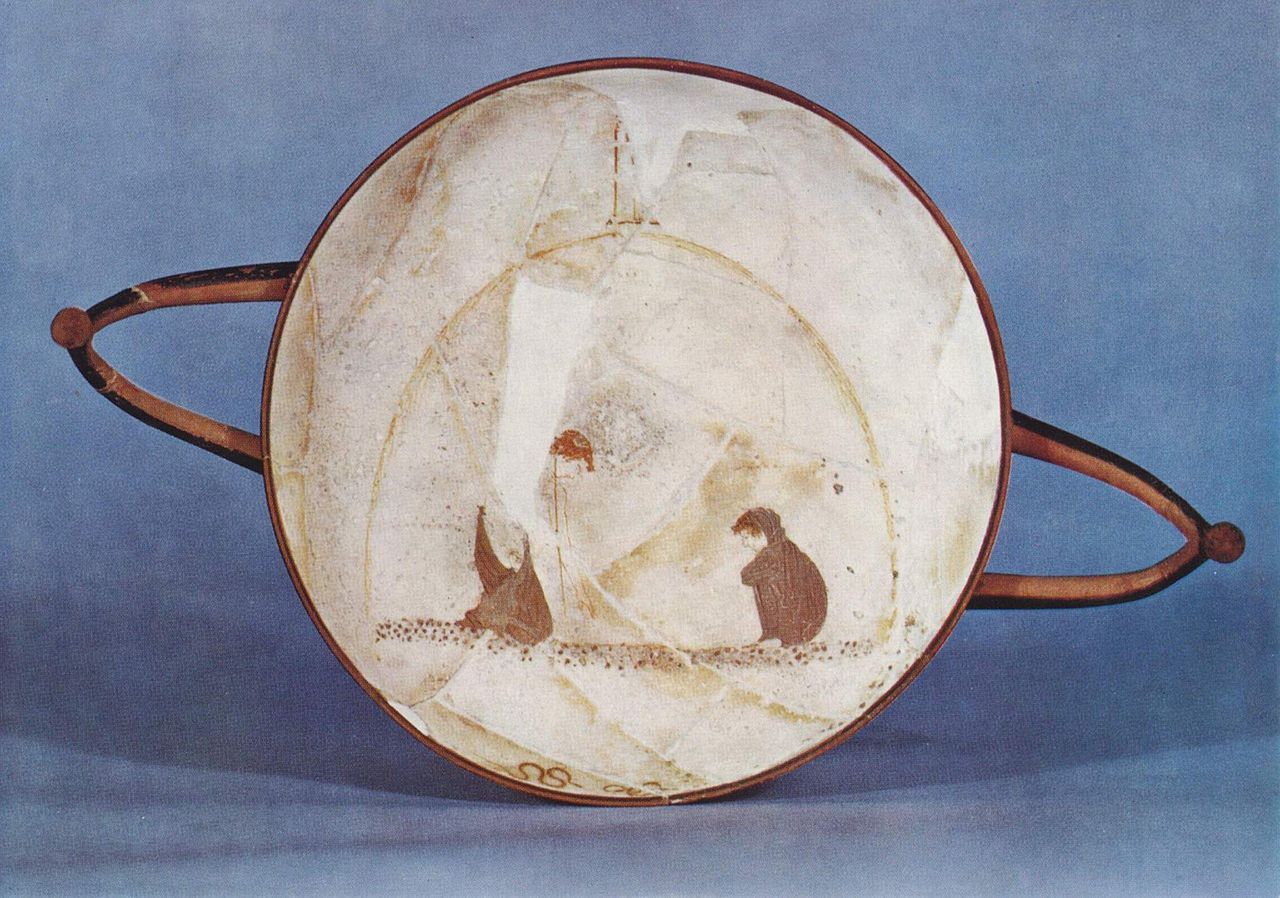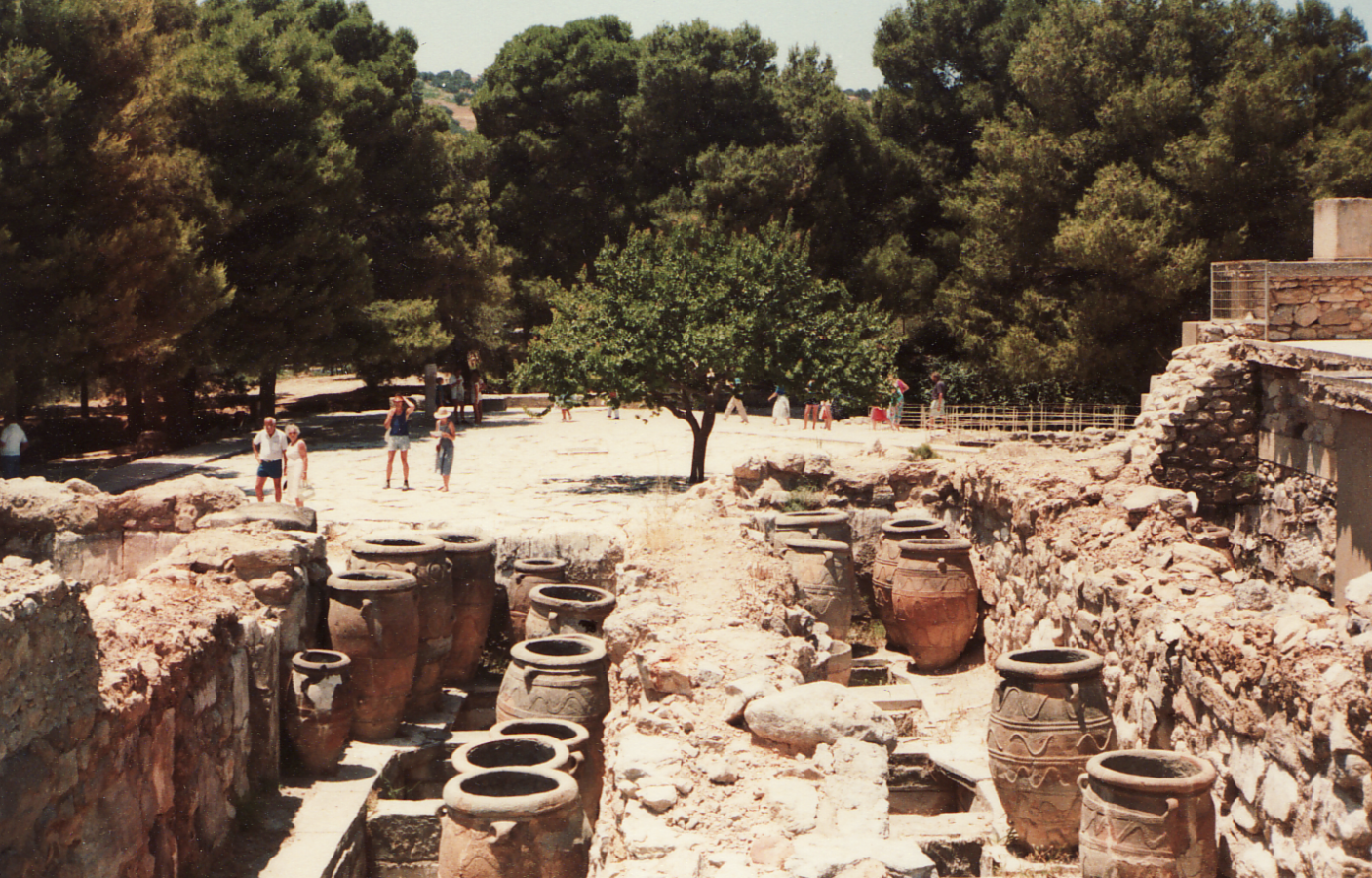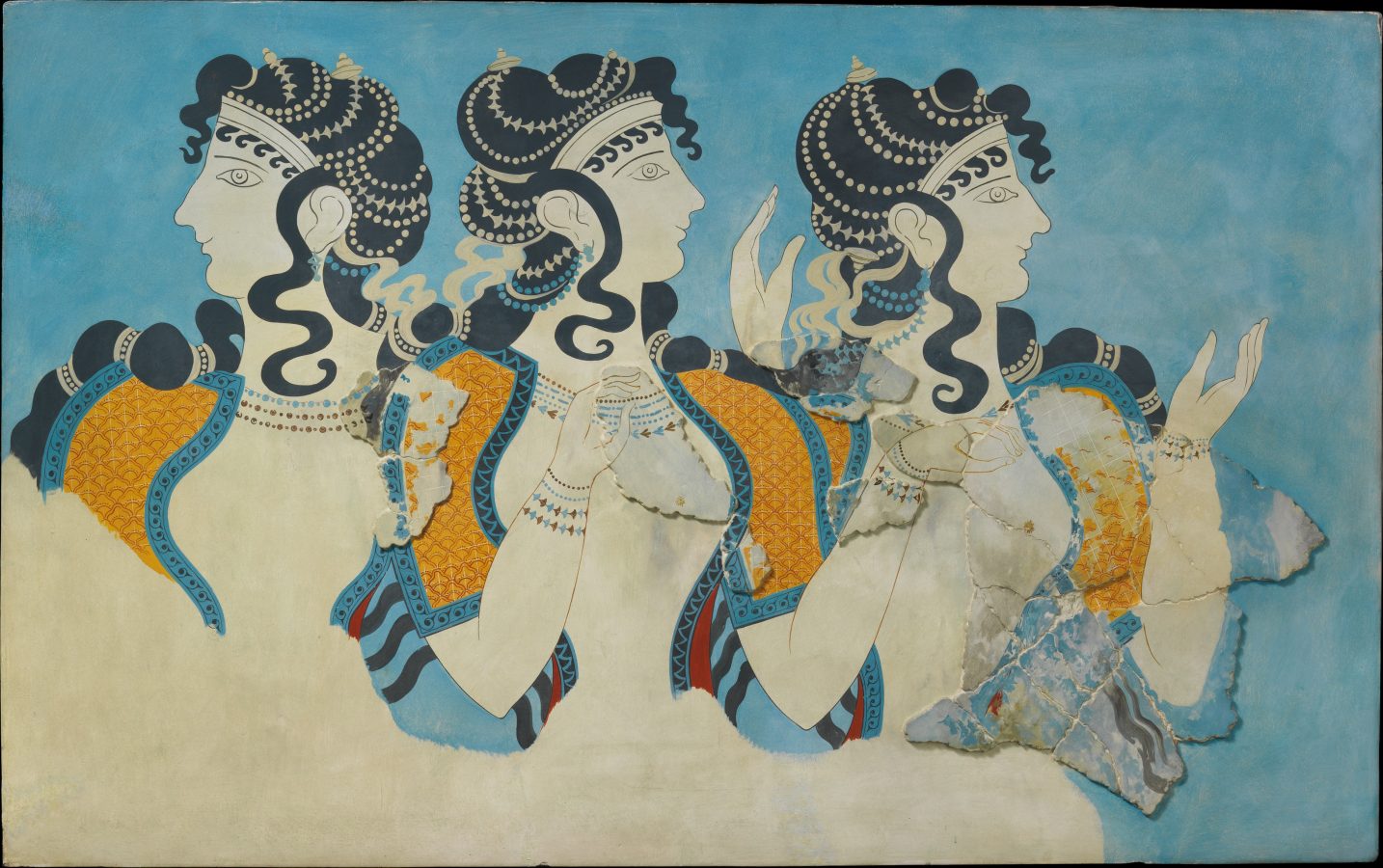The following story-report brings to the forefront the question “When do we consider a multitude of coincidences key parts of a greater fact?”
Glaucus ran as fast as he could through the avenue of cypress trees that lined his father’s royal road. Ahead of the bronze-skinned boy a frightened field mouse ran darting in and out of doorways and crevices before finally disappearing into an open storeroom. Wanting the tiny rodent as a pet, Glaucus felt sure he’d capture his prize now, so he stepped into the cavernous warehouse shutting the huge wooden door behind him.
“Bear up, my child, bear up; Zeus who oversees and directs all things is still mighty in heaven.” — Sophocles —
The torchlight played tricks on the young lad, and imaginary mouse shadows seemed to dart across the tiled floor and in between the giant pithoi that held the city’s stores of agricultural wealth. Rubbing his eyes Glaucus finally adapted to the flickering light, spotting the little eyes of the mouse in the shadows in between two of the biggest storage erns high up on a second tier. Excited to have finally cornered his new friend, he slipped climbing the ladder and fell headlong into the biggest of the pithoi. If not for a miracle, the Prince of the Minoans would never have been heard from again.

King Minos and his Queen Pasiphaë were beside themselves with grief when their son could not be found. It had been days since Glaucus had disappeared without a trace. A search of the Palace at Knossos turned up nothing. And when the King ordered an expanded search of the entire island, no emissary of captain returned with news of their boy. With nowhere else to turn, after countless offerings had been made, the royal couple departed aboard ship for the distant Delphi and the famous oracle there. Consulting the conduit to the gods, Minos and Acacallis gained hope when the oracle presented them with a hopeful riddle. “A marvelous creature has been born amongst you: whoever finds the true likeness for this creature will also find the child,” the oracle proclaimed.
Back at the palace on Keftiu, Minos summoned the famous seer Polyidus, who observed a newborn calf in Minos’ herd. Three times a day, he observed, the calf changed color from white to red to black. This phenomenon made Polyidus associate the sign with the ripening of the fruit of the mulberry plant, after which he set out to find young Glaucus.

The prophet searched each lane, street, and alleyway of the massive palace of King Minos until he caught sight of an owl driving bees away from a wine-cellar in of the palace. Once inside the wine-cellar, Polyidus noticed immediately the fallen ladder against one wall. Setting it straight he climbed up to find the young prince lifeless in the pithoi full of golden honey. Removing the child, Polyidus sent a guard for the King, who on seeing his son demanded the seer bring him back to life. When Polyidus objected saying he could not, King Minos ordered him sealed in the cellar until he resurrected his dead child.
Minos had no other choice since the Delphic Oracle had decreed the seer would bring the child back to life. But stuck there in the cellar, Polyidus had no clue as to how to return the child to the living. Then a snake appeared from the shadows, which Polyidus killed immediately. It was when a second snake appeared when the wise man became calmer and took notice. The second reptile, seeing its mate dead, went back into the shadows later returning with an unusual herb. The snake covered its mate with the mysterious plant, which immediately revived the dead snake.
Seeing this miracle, Polyidus mimicked the snake and covered the lifeless Glaucus with the same herb. There before his eyes, Prince Glaucus breathed once again. King Minos, elated with the return of his son, rewarded the seer richly. However, knowing the value of the method Polyidus had used, the Minoan king refused to let the mystic leave Keftiu until he shows Glaucus how he had divined him back to life. Polyidus complied, but at the instant, he was to board a ship to leave he asked the young prince to spit in his mouth. Grateful to the seer, Glaucus did so only to immediately forget everything he had learned from the man.
To this day researchers, doctors, scientists, and historians have pondered the mysterious herb that was instrumental in the mythological tale. Many theories abound, but the herb most often associated with such divine qualities is unique to Crete even now. Organikum Dictum, is a tender perennial plant that grows wild on the mountainsides and gorges of Crete. Renowned for millennia for its curative properties, the ancients believed administering it to those with arrow wounds would cause the projectiles to be expelled. There are legends that say Crete goats shot with arrows will seek out the herb to get rid of the deadly hunter’s barbs.

Another interesting cross-reference is the legend of Perseus, his killing of the Minotaur, and the mythos surrounding the blood of the Gorgon Medusa. In some ancient myths, blood taken from the right side of a Gorgon could bring the dead back to life, while blood from the opposite side could kill instantly. Another Glaucus account says it was the legendary healer Asclepius who brought the Minoan prince back with a vile of the blood he received from the goddess Athena.
Finally, the Prince Glaucus being drowned in honey and the symbology of bees leading Polyidus (or Asclepius) to him, it’s made more poignant when you consider the Minoan goddess Melissa. It was this mountain nymph who legend has hiding Zeus from his father, Cronus, and feeding the infant god borning high up on the Dikte Mountain Range with honey instead of milk. Melissa in ancient Greek means “bee.” Melissa was also the daughter of King Melisseus was the eldest and leader of the nine Kuretes of Crete who hid the infant Zeus from Cronos by clashing their spears and shields together. But now we have enough “coincidence.” For further reading, this study reveals the rare Cretan herb Origanum dictamnus may lead to curing liver and other cancers.
[…] potential of Crete’s past, whatever medicine recipes are hidden in the lost language of the Minoans, and meeting the extraordinary Cretans who try and recover them organically is a great adventure […]